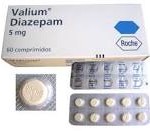 I've been reading The Sociopath Next Door by Martha Stout -- an excellent and yet frustrating book about antisocial personality disorder. Stout's engaging style and in-depth clinical experience with victims of sociopathic predators bring the subject to vivid life. The vignettes read more like suspense novels: as the character of the sociopath gradually unfolds, your sense of foreboding grows. You continue reading with a mixture of dread and fascination, wondering what will happen to Stout's clients, whether they will extricate themselves from the manipulative grip of an unfeeling spouse or parent, whether the unsuspecting people who surround the sociopath will wake up in time. I found the book a gripping read.
I've been reading The Sociopath Next Door by Martha Stout -- an excellent and yet frustrating book about antisocial personality disorder. Stout's engaging style and in-depth clinical experience with victims of sociopathic predators bring the subject to vivid life. The vignettes read more like suspense novels: as the character of the sociopath gradually unfolds, your sense of foreboding grows. You continue reading with a mixture of dread and fascination, wondering what will happen to Stout's clients, whether they will extricate themselves from the manipulative grip of an unfeeling spouse or parent, whether the unsuspecting people who surround the sociopath will wake up in time. I found the book a gripping read.
It's a practical book, too: Stout explains with great clarity how to recognize sociopaths, placing special emphasis on their efforts to arouse your pity in order to manipulate you. She has a set of thirteen rules for dealing with the sociopath, useful advice for the person who may be under the spell of someone with antisocial personality disorder. Although she doesn't normally recommend avoidance as a coping device for her clients, Stout believes that steering completely clear of the sociopath is the most effect mode of self-defense. Because sociopaths have no "conscience," as she describes it, there is no way to appeal to their sense of justice or fairness. Because they apparently lack all human feeling for other people (empathy), you can't appeal to their compassion. Because sociopaths will do anything in order to win, once you enter into their game, you're bound to lose. Her observations seem trenchant, her advice on point.
Continue "Antisocial Personality Disorder: The Sociopath Next Door"
 I haven’t written about my opposition to the widespread use of psychiatric medications in quite some time, mostly because I feel I’ve already said most of what I have to say on this issue. (See the collection of posts under the heading “The Medicalization of Mental Health,†to be found at the lower right of this page.) But a new study was recently released which demonstrates a link between the use of benzodiazepines and the risk of developing Alzheimer’s disease. While this study says nothing about the long-term effects of SSRIs, the history of benzodiazepine usage offers a cautionary tale as to how little we truly understand about a drug’s side effects during the years immediately after psychiatrists and physicians begin prescribing it.
I haven’t written about my opposition to the widespread use of psychiatric medications in quite some time, mostly because I feel I’ve already said most of what I have to say on this issue. (See the collection of posts under the heading “The Medicalization of Mental Health,†to be found at the lower right of this page.) But a new study was recently released which demonstrates a link between the use of benzodiazepines and the risk of developing Alzheimer’s disease. While this study says nothing about the long-term effects of SSRIs, the history of benzodiazepine usage offers a cautionary tale as to how little we truly understand about a drug’s side effects during the years immediately after psychiatrists and physicians begin prescribing it.

